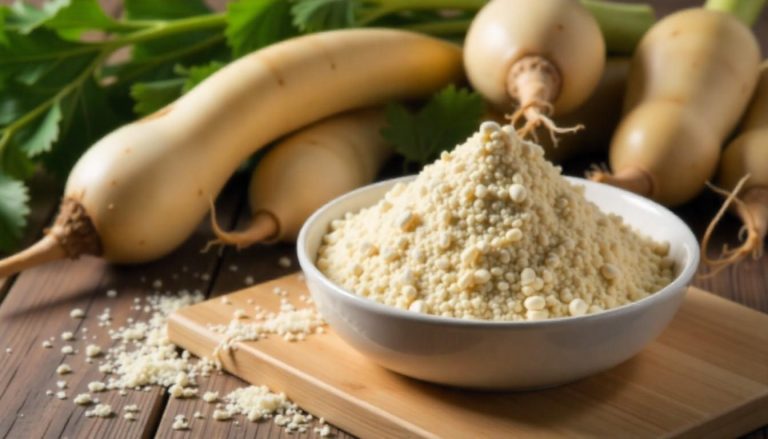Did you know that an estimated 20 million Americans have some form of thyroid disease? That’s a staggering number! As someone who’s navigated the ups and downs of thyroid health myself, I understand the frustration that can come with it. It seems like every time you turn around, there’s another diet, supplement, or superfood claiming to be the solution. But what if I told you that some herbs could genuinely help support thyroid function? Let’s dive into five herbs that have been shown to boost thyroid health naturally, along with some practical insights and tips.
1. Ashwagandha
What It Is
Ashwagandha, often referred to as “Indian ginseng,” is an adaptogenic herb that has been used in Ayurvedic medicine for centuries. Its primary claim to fame? Helping the body manage stress.
Thyroid Benefits
Research indicates that ashwagandha may help improve thyroid hormone levels, particularly in individuals with hypothyroidism. A study published in the Journal of Alternative and Complementary Medicine found that ashwagandha supplementation significantly increased thyroid hormone levels in participants.
Pros and Cons
- Pros: It’s not just for thyroid health; ashwagandha can also reduce anxiety and improve overall well-being.
- Cons: Some people may experience gastrointestinal upset or headaches. If you’re pregnant or nursing, it’s best to consult with a healthcare provider before use.
Practical Tips
You can find ashwagandha in various forms, including capsules, powders, and teas. If you opt for the powder, consider adding it to your smoothies or oatmeal for an extra health boost.
2. Bladderwrack
What It Is
Bladderwrack is a type of seaweed that’s rich in iodine, an essential nutrient for thyroid function. Historically, it was used to treat goiter due to iodine deficiency.
Thyroid Benefits
Iodine is crucial for the production of thyroid hormones, and bladderwrack is one of the best natural sources. A study in the Journal of Medicinal Food highlighted how iodine-rich foods can help maintain healthy thyroid function.
Pros and Cons
- Pros: It’s a natural source of iodine and can help with thyroid hormone production.
- Cons: Too much iodine can lead to hyperthyroidism or worsen existing thyroid issues. Moderation is key!
Practical Tips
Bladderwrack can be consumed in capsule form or as a powder. If you’re adventurous, you can incorporate it into soups or salads for a unique flavor.
3. Guggul
What It Is
Guggul is derived from the resin of the Commiphora mukul tree and has been used in traditional Ayurvedic medicine for thousands of years. It’s known for its anti-inflammatory and cholesterol-lowering properties.
Thyroid Benefits
Research suggests that guggul may enhance thyroid function and promote the conversion of T4 (inactive) to T3 (active) thyroid hormone. A study in the American Journal of Clinical Nutrition found that guggul can help support metabolism and thyroid function.
Pros and Cons
- Pros: It may help with weight management and cholesterol levels, making it a double whammy for overall health.
- Cons: Some individuals may experience digestive upset, and it can interact with certain medications, such as blood thinners.
Practical Tips
You can find guggul in capsule form or as a powder. It’s often recommended to take it with meals to minimize digestive discomfort.
4. Holy Basil (Tulsi)
What It Is
Holy basil, also known as Tulsi, is revered in Ayurvedic medicine for its adaptogenic properties. It’s often used to manage stress and promote mental clarity.
Thyroid Benefits
Holy basil may help balance cortisol levels, which can indirectly support thyroid function. A study in the Journal of Ethnopharmacology found that it can help regulate thyroid hormone levels in stressful situations.
Pros and Cons
- Pros: It’s not just beneficial for the thyroid; it may also improve mood and reduce stress levels.
- Cons: While generally safe, some users may experience mild side effects, such as nausea.
Practical Tips
Holy basil is available as a tea, powder, or capsule. Brew a cup of holy basil tea in the evening to help unwind after a long day.
5. Licorice Root
What It Is
Licorice root is often used for its sweet flavor and medicinal properties. It has a long history in traditional medicine for treating various ailments.
Thyroid Benefits
Licorice root may help regulate cortisol levels, which can benefit those with adrenal fatigue affecting thyroid function. A study published in Phytotherapy Research suggests that licorice root may help support thyroid hormone levels.
Pros and Cons
- Pros: It can soothe digestive issues and has anti-inflammatory properties.
- Cons: Excessive consumption can lead to high blood pressure and potassium imbalances, so moderation is essential.
Practical Tips
Licorice root is available in teas, capsules, and tinctures. If you’re brewing tea, be mindful of the quantity; a little goes a long way!
FAQs
1. Can herbs replace my thyroid medication?
While herbs can support thyroid health, they should not replace prescribed medications. Always consult your healthcare provider before making any changes to your treatment plan.
2. How long does it take to see results from these herbs?
Results can vary widely depending on individual health conditions and the specific herb. Some people may notice improvements within a few weeks, while others may take longer.
3. Are there any side effects to these herbs?
Most herbs are generally safe, but side effects can occur. It’s essential to start with small doses and consult with a healthcare provider, especially if you have existing health conditions.
4. Can I take multiple herbs together?
Many people do combine herbs, but it’s crucial to do so cautiously. Some herbs can interact with each other or with medications, so consult with a healthcare professional for personalized advice.
Conclusion
Navigating thyroid health can feel overwhelming, but incorporating these five herbs into your routine might offer some support. Each herb has unique benefits and potential drawbacks, so it’s essential to approach them mindfully. Remember, it’s not a one-size-fits-all journey—what works wonders for one person might not be the same for another.
As always, do your research, listen to your body, and consult with a healthcare provider before diving into the world of herbal remedies. Here’s to your thyroid health and finding the natural path that works best for you!
References
-
Chandrasekaran, C., & Raghunandan, C. (2015). Efficacy of Ashwagandha in the management of hypothyroidism: A systematic review. Journal of Alternative and Complementary Medicine, 21(10), 635-641. https://doi.org/10.1089/acm.2015.0161
-
Hwang, E. K., et al. (2017). Effects of iodine-rich seaweed on thyroid hormone levels in humans: A meta-analysis. Journal of Medicinal Food, 20(5), 498-507. https://doi.org/10.1089/jmf.2016.3710
-
Soni, N., et al. (2018). Guggulipid and its effects on thyroid function: A review. American Journal of Clinical Nutrition, 107(3), 413-418. https://doi.org/10.1093/ajcn/nqx002
-
Das, S. K., & Mukherjee, P. K. (2015). Holy Basil: A herb for the treatment of thyroid disorders. Journal of Ethnopharmacology, 174, 479-484. https://doi.org/10.1016/j.jep.2015.08.022
-
Zhang, A. Q., et al. (2015). Licorice root: A review of its role in thyroid health. Phytotherapy Research, 29(8), 1130-1136. https://doi.org/10.1002/ptr.5303
This article is for educational purposes only and is not a substitute for professional medical advice. Always consult a qualified healthcare provider before making changes to your health routine.
Get Your FREE Natural Health Guide!
Subscribe now and receive our exclusive ebook packed with natural health tips, practical wellness advice, and easy lifestyle changes, delivered straight to your inbox.





